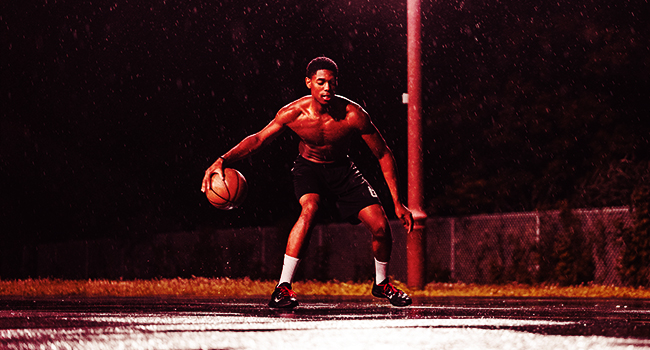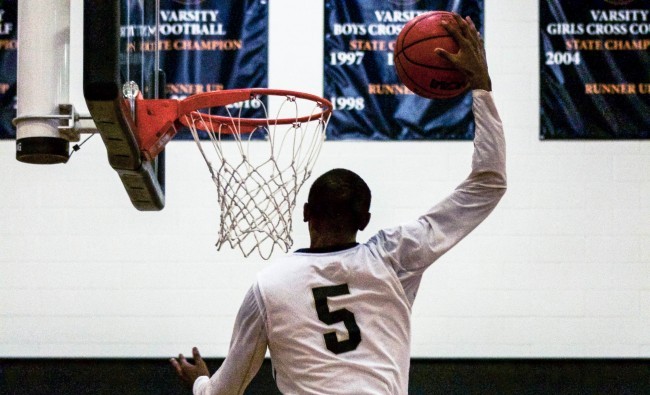
If you ask a little kid what they want to be when they grow up, you’ll find they’re full of big dreams. They want to be a professional basketball player! Or a movie star! Or the surprisingly common: “garbage truck!”
But as unlikely as it may seem that your three-year-old nephew will grow up to play the lead in summer blockbusters or somehow turn into a 30-thousand pound municipal vehicle, either of those options feels more realistic goal than getting paid big money to shoot hoops. Because while this is many a small child’s (and grown adult’s) dream, it is incredibly hard to make a reality. It takes practice, luck, an uncanny ability to avoid injury, a knack for coach-ability, and rest.
Yes, more rest is actually crucial to success in the pros… and also in life. The positive results of a good night of sleep have long been clear to doctors and researchers in sports, but now, teams, coaches, and athletes are getting into the pro-sleep movement. They’re making it a point to prioritize a night of Zs in their training regimens because it’s clear that sleep, unequivocally, makes athletes better. It’s been proven in pretty much every sport, but none so dramatically as in basketball.
Unlike sports like baseball, which group games together to keep players from having to travel as often, basketball involves players traveling from city to city daily, often without even a full 24-hour break between games. The travel alone is insane — basketball players log significantly more miles than football, baseball, or hockey players — and it takes a toll on players mentally and physically.
All that time on the road leaves players exhausted. Quality sleep falls by the wayside as teammates are expected to snooze on planes, buses, and in new hotel rooms. Time changes are frequent and games are often back to back. And like any profession that takes place into the night (but especially in a sporting event where the adrenaline is extreme), players have a hard time decompressing and going to sleep at a reasonable bedtime afterward. Games end late in the evening, ballers are expected to talk to the press after, and often they still need to eat and relax. When you aren’t even done playing until after 10 pm, these extra time constraints can push bedtimes back until well after midnight, if not later.
This is a problem for a sport that takes a physical toll on its players and requires a great deal of focus and precision. Especially because research shows that there is a strong correlation between sleep and success in basketball.
“Sleep is probably the single biggest legal performance enhancer for an athlete,” The director and lead researcher for athletic development facility, Athletic Lab, Mike Young tells us. “Research has shown that sleep improves recovery from training and games, reaction time, decision making, and power while reducing the likelihood of injury.”
One recent study, published in the Journey of Sleep, found that basketball players who stayed up between 11PM and 7AM tweeting had poorer performances during games than when they didn’t engage with social media. To conclude this, researchers studied data from pro players across seven seasons of play. Then they analyzed tens of thousands of tweets from the verified players and cross-checked those time stamps with game performance stats for the next day. The results showed a clear correlation between lack of sleep and decreased success in points scored, rebounds, reactions times, and accuracy.
“If you grant our assumption that a late-night tweet indicates a player is awake late at night when they otherwise would be sleeping, then the results show decreased performance when a player is sleep-deprived,” lead investigator in the study, Jason J. Jones told Uproxx. “As one example, not getting a full night’s sleep costs you about 2 percentage points on your field goal shooting percentage.” That may not sound like a lot, but in a game where every shot could be the difference between a win and a loss, it’s huge.
That connection between sleep and performance is something that is obvious to USC’s former assistant basketball coach and now director of scouting, Martin Bahar.
“As a coach, it is quite apparent when one of your athletes is not getting the appropriate amount of rest on a day to day basis,” Bahar says. “Social life and technology (phones, video games, etc.) have proven to interfere with the necessary rest required to consistently achieve peak performance as an athlete.”
Rest and diet are crucial parts of what the complete training package should be for players, he explains, and vital to help them recover from the stress that affects their bodies in competition.
“The hormones in our body fluctuate throughout the day and night,” Mike Young says, explaining the medical aspect. “While we are sleeping, the production of critical anabolic hormones like growth hormone and testosterone are at their highest. These hormones are critical to the recovery of muscle and soft tissue.”
But the reason pros are prioritizing sleep is not just because research shows that a lack of sleep can hurt an athlete’s game. Getting more time resting has been shown that it can help improve your stats, significantly.
Increased sleep leads to a higher and more accurate level of performance, something seen anecdotally by coaches like Bahar, but with significant research to back it up. A Stanford study found that more sleep makes a huge, positive difference in basketball performance. Researchers had college players sleep for at least 10 hours a day for 5-7 weeks. This extra sleep gave the basketball players measurably better game statistics. The students were running faster, scoring more, and they increased their free throw percentage by an average of nine percent.
It’s clear that getting more sleep is a key factor in improving a basketball player’s game. It’s the best (and easiest) change to incorporate into their lifestyle when they want to be the very best. And there’s an almost overwhelming amount of scientific evidence that proves that.

Luckily, teams are starting to take these studies seriously. Because if those teams (and owners) want their players to perform to their maximum potential, they need to make rest a priority. And they have, to a degree — by eliminating the “four games in five nights” stretches and greatly reducing the back to back games that were especially grueling for players. That leaves more time to get in those extra hours.
Teams are starting to employ sleep experts to consult players, too, and players are understanding that their career will be longer and more prolific if they incorporate good sleep into their schedules. Some of the greatest players of all time credit long prioritized sleeping (some as much as 12 hours a day in preparation of games) as a large component of their success.
And as rest and training become more of a factor in training programs and game schedules, researchers stress that these studies are important to people off the court. Because we don’t need to get paid to shoot free throws to value accuracy in our lives and jobs.
“I think these findings are just one example of lack of sleep harming one’s performance,” Jones tells me. “We’ve all had the experience of being groggy after insufficient sleep. Being groggy will hurt your ability to make quick, precise moves on the basketball court, and I believe it will hurt your ability to make quick, smart decisions in any context where you are trying to perform your best.”
It can be easy to put sleep last when our lives are busy, and obligations and stress pull us in a million different directions. We need more hours in the day, many of us have thought, and pushing off sleep seems like the most obvious way to extend our working/waking hours. But, as Mike Young reminds us, prioritizing sleep will help us improve our lives in more ways than one.
“Being truly great at anything is not an accident!” he says. “A common denominator of greatness in any sport is looking for an edge anywhere you can find it. If you want to maximize your potential you need to take care of things like sleep and nutrition.”
The lesson? We’ll all be bigger ballers at our work (and in our lives) when we feel well rested. So if you want to reach new levels of success, incorporating more sleep is just, well, a slam dunk.






